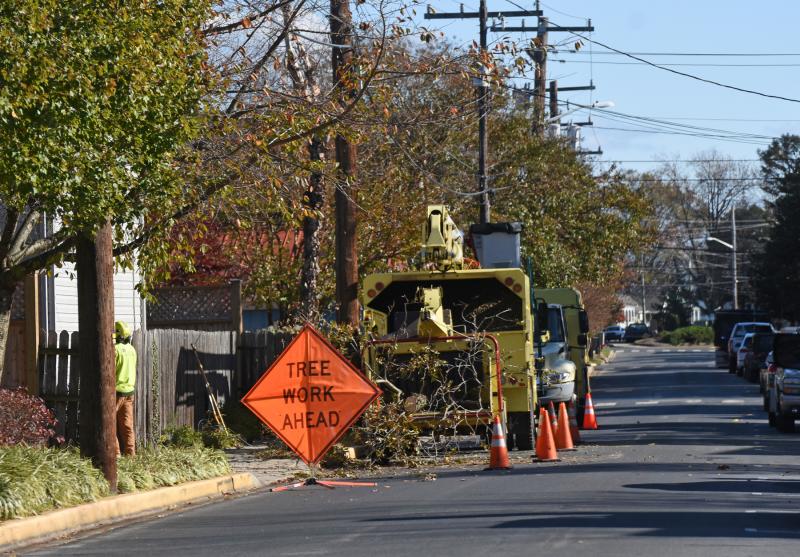Lewes ordinance would ban some gas-powered lawn equipment
Lewes officials are considering a ban on gas-powered landscaping equipment that uses two-stroke engines. If passed, the ordinance would be effective Dec. 31, 2022.
A two-stroke engine requires a mixture of gasoline and oil and is used in lawn mowers, blowers, trimmers, weed eaters and other commonly used machines.
While battery technology is rapidly improving, landscaping companies agree that most battery-powered equipment is not ready for heavy use in a commercial setting.
Lawns Unlimited owner Ed Fleming says it comes down to the length of time a battery can hold a charge. For some equipment like chainsaws or trimmers, batteries can last seven to eight hours. But in other machines like blowers, batteries die in about 15 minutes.
Included with the city’s proposed ordinance is a policy that says the city wants to reduce greenhouse gas emissions that contribute to climate change. It also says two-stroke engines emit large quantities of pollutants into the air, including carbon monoxide, hydrocarbons and nitrous oxides, which degrade the air quality. The equipment also contributes to noise pollution, the ordinance reads.
Tommy Engel of Double E Lawn Care agrees battery-powered equipment may be where the industry is headed in the future, but it still has a ways to go.
“I purchased a DeWalt and a Stihl blower in the last three years for my personal house. My reason was to put them through a trial run to switch over my company to battery,” he said. “Although I was very impressed, in my mind, they are just not ready for the abuse for the commercial side.”
He said his company will not drag its feet when battery-powered machines are capable of commercial use.
Valann Budischak, executive director of the Delaware Nursery & Landscape Association, also echoed concerns about the technology.
“If the technology and equipment is not available to the trade by [the city’s] proposed date, the customer will ultimately shoulder the burden,” Budischak said. “Increased time and manpower needed to complete the job, without the assistance of the current equipment available, will increase the cost extended to the homeowner, community and municipality.”
Some residents have complained about the pollution caused by the equipment. Others raised concerns about the noise.
Mike Schimmel, owner of Bella Terra Landscape & Nursery, says he’s adjusted operation hours to accommodate noise complaints.
As it relates to gas-powered equipment, he said the company is converting handheld string trimmers, hedge shears and stick edgers to battery. The company is not convinced other equipment is ready for conversion, specifically backpack blowers.
“They are better than they were a few years ago,” Schimmel said. “[But] they are not powerful enough to move the debris such as wet grass [and] the battery life is not long enough for the commercial trade.”
Deputy Mayor Bonnie Osler said she recently purchased a battery-powered lawn mower and has had a similar experience to the landscape experts.
“I like it for all the reasons that have been discussed, but I have a relatively small yard and a full battery charge will barely do my yard,” she said.
Council has left the record open until Friday, Dec. 4. City officials may take action on the issue at the regular meeting Monday, Dec. 7.
Nick Roth is the news editor. He has been with the Cape Gazette since 2012, previously covering town beats in Milton and Lewes. In addition to serving on the editorial board and handling page layout, Nick is responsible for the weekly Delaware History in Photographs feature and enjoys writing stories about the Cape Region’s history. Prior to the Cape Gazette, Nick worked for the Delmarva Media Group, including the Delaware Wave, Delaware Coast Press and Salisbury Daily Times. He also contributed to The News Journal. Originally from Boyertown, Pa., Nick attended Shippensburg University in central Pennsylvania, graduating in 2007 with a bachelor’s degree in journalism. He’s won several MDDC awards during his career for both writing and photography. In his free time, he enjoys golfing, going to the beach with his family and cheering for Philadelphia sports teams.




















































